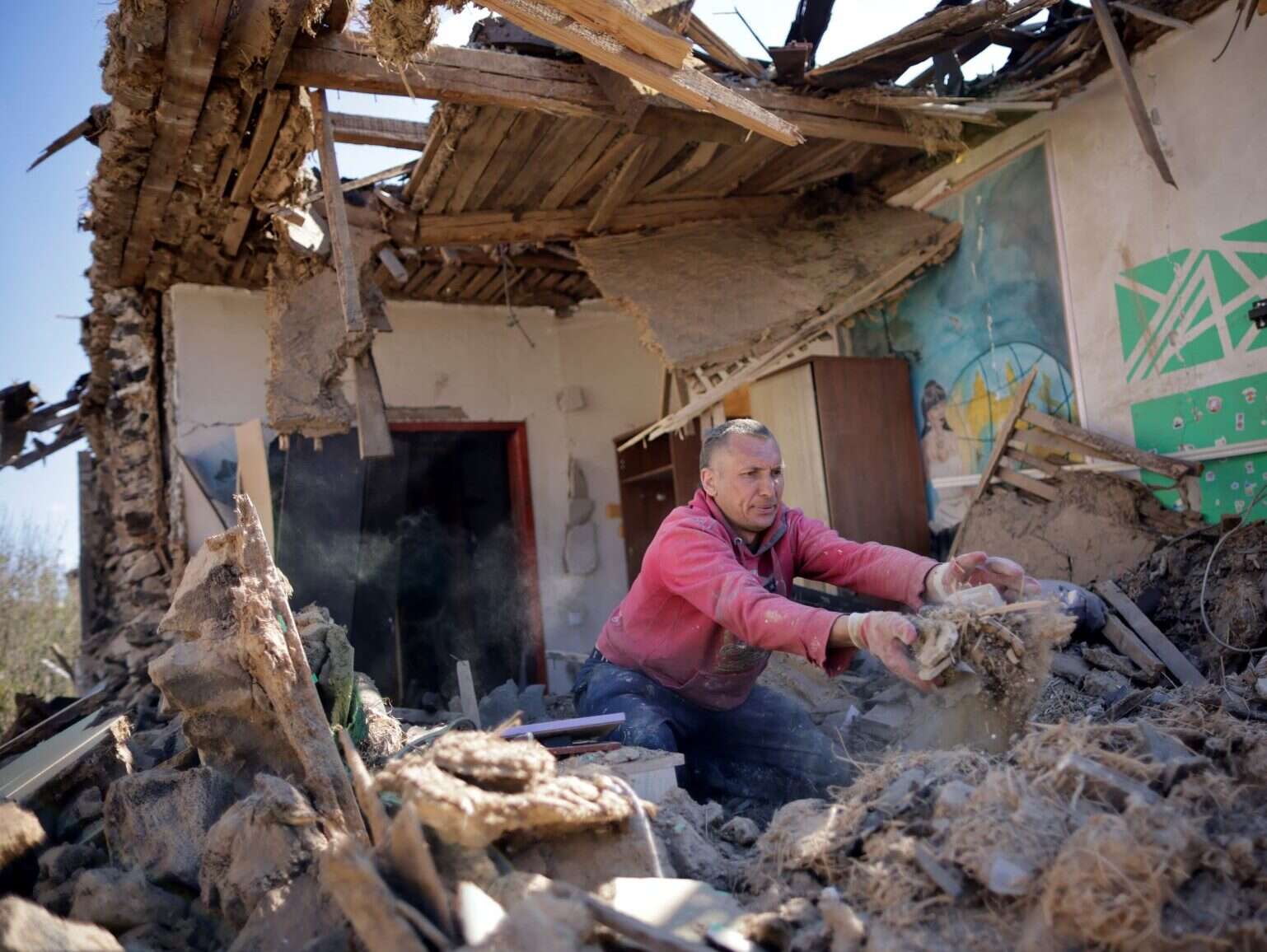
On 24 February, 5am Kyiv time, my family awoke to the piercing sounds of shelling. Russia had invaded Ukraine for the second time in a decade.
Ukraine’s local news outlets sprang into action, sharing lifesaving information about how to protect yourself, where to find shelter, and how to leave. I learned there were no bomb shelters near me – only a subway station, 1.2 km away. We made the impossible decision to leave. My family is now secure and safe. Still, many others cannot say the same.
In the fog of war, local media is a lifeline for vulnerable civilians. This is especially true in our information age and against a global barrage of Russian disinformation. We cannot hope to bring a lasting end to this conflict without it.
I was born in Luhansk, the furthest eastern region of Ukraine. I spent over 30 years in this part of the country, made a career, and gave birth to my son and daughter. I recall the green hills, rich black soil, sunflower fields, and the slag heaps of coal mines. The first time my family fled a Russian invasion was only eight years ago, when we joined nearly two million Ukrainians forced from the Donbas region to start our lives from scratch.
I joined Internews – an organisation that supports independent media in over 100 countries – where I used my expertise about the information environment in Donbas to help local media throughout the region continue reporting. When cities in Ukraine’s East were occupied in 2014, Russia imposed total control and censorship. To keep up free and professional journalism, local outlets were forced to relocate to Ukrainian-controlled territories, many of them to Kyiv. But they lost revenue, equipment, websites, staff, and audience share.
Today, as my family joins the five million Ukrainians forced out of the country by Russia’s full-scale invasion, local media in areas newly occupied by Russian troops are under even greater assault. Independent media that report the truth are a threat to Russian occupiers, who base their rule on lies. The invaders close down Ukrainian TV and radio stations, instead broadcasting Russian TV, complete with anti-Ukrainian and anti-Western propaganda and fake news.
Newspapers are forced to stop publication. Online media face daily DDOS attacks, hacking, and emailed threats of torture, arrest and persecution. Russian occupiers destroy or seize TV towers, shell media offices, disable radio broadcasting, block access to Ukrainian media sites, and target journalists.
Ukraine faces an ever-expanding information vacuum without local media
In the first two months of the invasion, more than 243 alleged crimes have been committed against Ukrainian journalists, who have been abducted, interrogated, tortured, imprisoned, or murdered since that day in February.
Citizens face an ever-expanding information vacuum that threatens both their work and their lives. When people lose access to information from trusted sources, they’re far more vulnerable to Russian disinformation. “No one cares about you.” “The Ukrainian army is shelling your home.” “Russia is here forever.” All common messages currently being sent to people in temporarily occupied territories.
Independent media across the country have rallied to maintain the flow of accurate information that lets citizens decide for themselves. Media in western regions lent a hand to journalists in areas badly affected by the war, opening media hubs, sharing offices, and helping to relocate journalists and their families.
Despite the risk of being persecuted or killed, many journalists remain in their communities, often just a few kilometres away from the frontline. Their work is sometimes the difference between life and death. For example, journalists working in Zaporizhzhia are providing information about the dire humanitarian and safety situation of people living in surrounding cities and villages that are currently occupied by Russian troops. This includes the small town of Enerhodar, where the largest nuclear power plant in Europe remains vulnerable.
This media coverage drew the attention of the Ukrainian authorities, who then pressed for evacuation and humanitarian relief corridors. Thousands of citizens benefited, either by leaving through these pathways or receiving what they needed most — food and medicine. Without local media, no one would have heard their cries for help.
Still, it isn’t enough. Without income, Ukrainian media outlets – especially small local ones – are running solely on savings or the uncompensated dedication of their staff. Journalists, now war reporters, desperately need flak jackets, first aid kits, and secure technology – all are extremely difficult to get at present. They need our help now.
Russia’s invasion of Ukraine has underlined once again the essential role of independent, ethical journalism in assisting citizens to make life-or-death decisions, informing the world, and holding the powerful to account. As all eyes stay on Ukraine, ensuring the survival of independent, local media is paramount to providing accurate information that saves lives, debunks disinformation, and galvanizes global resolve.
Tetiana has asked for us not to use her surname or a profile picture for security reasons. She is a communications and program manager for Internews, a non-profit that supports independent media in 100 countries, including Ukraine.
Main image: A Ukrainian man removes debris from his house that was damaged by a missile attack in Zaporizhzhia. Picture: Reuters/Ueslei Marcelino
Email pged@pressgazette.co.uk to point out mistakes, provide story tips or send in a letter for publication on our "Letters Page" blog
